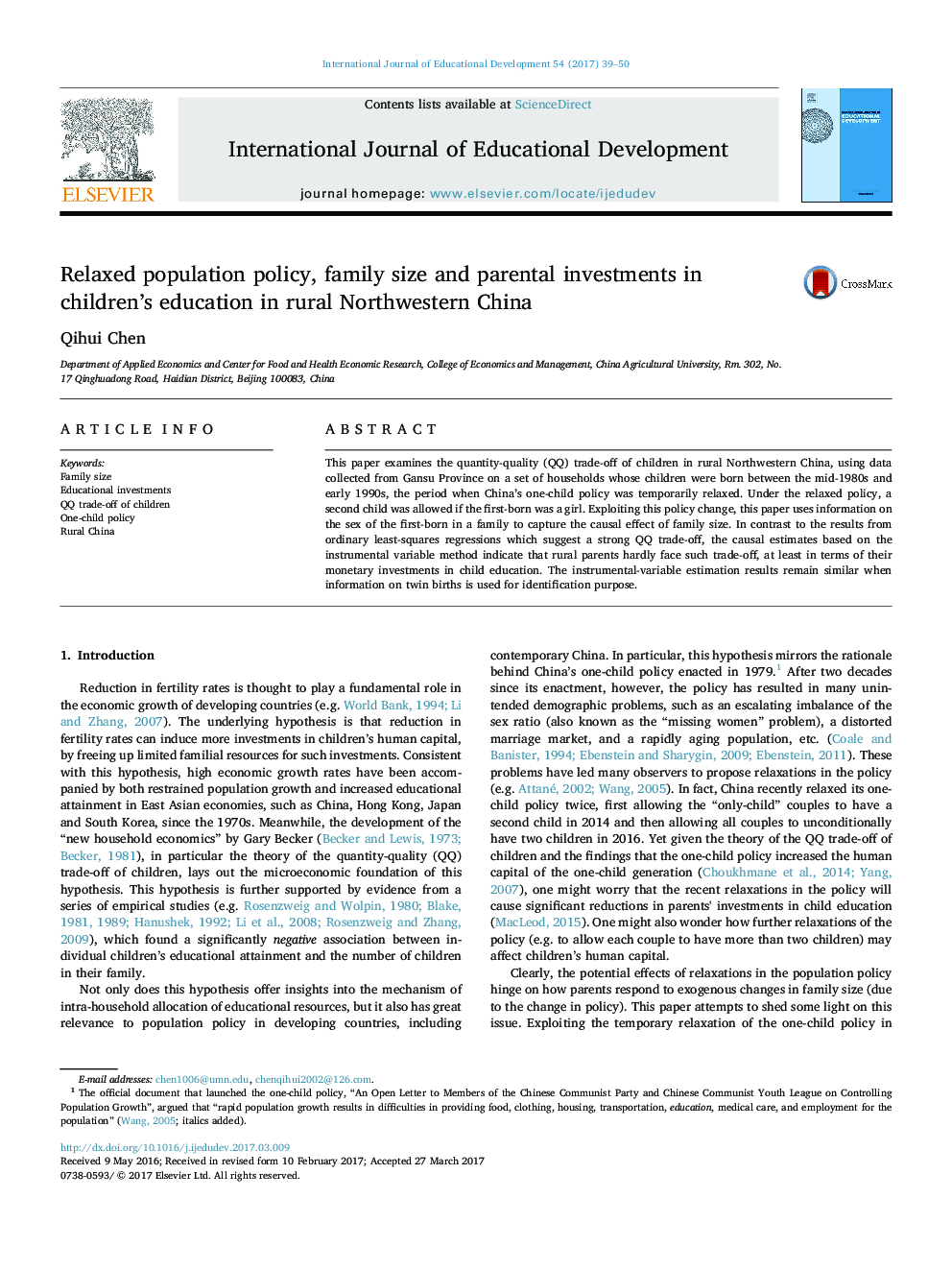| Article ID | Journal | Published Year | Pages | File Type |
|---|---|---|---|---|
| 4938495 | International Journal of Educational Development | 2017 | 12 Pages |
Abstract
This paper examines the quantity-quality (QQ) trade-off of children in rural Northwestern China, using data collected from Gansu Province on a set of households whose children were born between the mid-1980s and early 1990s, the period when China's one-child policy was temporarily relaxed. Under the relaxed policy, a second child was allowed if the first-born was a girl. Exploiting this policy change, this paper uses information on the sex of the first-born in a family to capture the causal effect of family size. In contrast to the results from ordinary least-squares regressions which suggest a strong QQ trade-off, the causal estimates based on the instrumental variable method indicate that rural parents hardly face such trade-off, at least in terms of their monetary investments in child education. The instrumental-variable estimation results remain similar when information on twin births is used for identification purpose.
Related Topics
Social Sciences and Humanities
Social Sciences
Development
Authors
Qihui Chen,
